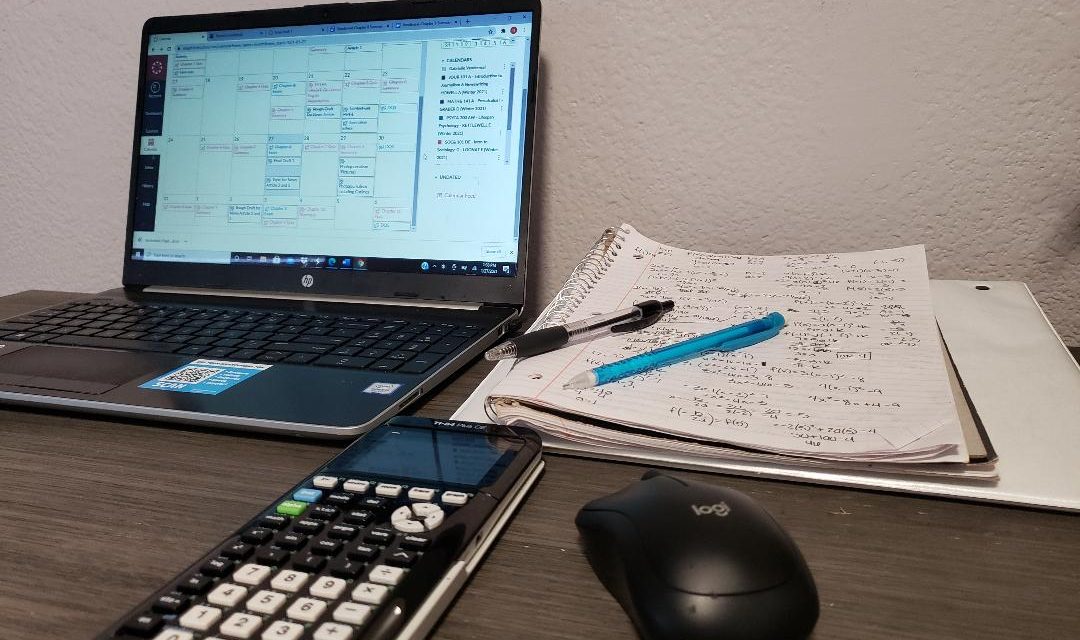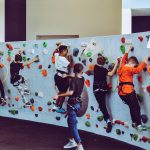Photo by Gabrielle Vanderwal
By Gabrielle Vanderwal
In March 2020, schools in Washington State were moved from on campus to remote learning following the continuous and vicious spread of Covid-19. With the exception of few, most schools are still solely online. Some schools tried out a hybrid method of learning, where students are on campus a few days a week once the spread slowed. However, Zoom has been utilized by schools all over the country to host online classes and eliminate the need to be on site. Many students had never taken an online course before the pandemic first put them in quarantine, which meant they had to learn the ins and outs of online schooling quickly. It has almost been a year since the initial shut down of schools, so how are the students and their teachers feeling about online schooling now?
Former Mount Vernon Christian High School student, Rylee Smith, with no previous experience with online schooling says “Online school has started becoming something I listen to while doing something else, rather than sitting down and focusing only on Zoom. It’s just bringing down my attitude and motivation for school.” On the other hand, Skagit Valley College student Kelsey McKinney said that she only had one online class prior to moving to remote learning. She states that “at first I found it really difficult.” She also said “over time I have gotten used to it and have found ways to stay focused and limit my distractions.”
Zoom has been a commonly used app by businesses, friends, and schools to host virtual meetings or classes during the pandemic. Though many people were introduced to the platform almost a year ago, there is the ongoing issue of internet connectivity problems. Elizabeth Kettlewell, a professor at Skagit Valley College, says that for three months she made trips to her mom’s house to access the internet, for both her and her kids. Though this problem can not be officially solved, it can still be a roadblock in the students’ education. Apart from trying to figure out how Zoom worked in the beginning of last year, the internet connection seems to be the only complication with the app.
The general consensus between Kettlewell, Smith, and McKinney, is that they all would prefer on campus learning. “I miss the interaction I had available to me with students and teachers” says McKinney, “it gave me more of a sense of accomplishment and socialization.” Smith says “I am forced to focus and I have others around me to keep me in line.” Kettlewell states about in person classes that “what rewards me the most as a teacher is the interaction with the students, seeing the questions and connections and discussions that are prompted from our class material” She goes on to say “online, it is almost impossible to engage a student who is reluctant, or to pull in a student that is struggling, unless the student really wants help.” She also speaks about how the success of students in online schooling varies greatly, claiming some are able to do really well with online courses, and others who cannot get what they need for a successful education from across the screen.
So how can a student not incredibly comfortable with remote learning be successful in their courses? Kettlewell suggests four main ideas to thrive in online courses from a professor’s perspective: read your syllabus, not only at the beginning of the quarter but throughout. Communicate with not only your teacher, but other students as well. Stay on top of your work because it is easier to fall behind and stay behind on your coursework, and finally, ask for help and utilize the resources available to you through your school. From a students perspective, Smith says to stay in the routine you had when heading to campus, as it will help you stay in the right mentality for learning. McKinney’s advice for fellow students is to get used to the online setting of classes and take your time in doing so. She says that patience is an important part of the process, as well as communicating with other students and your teachers.
Ultimately, there are mixed feelings and opinions about remote learning. It has brought ease to some students, yet frustration for others. The longing for on campus events, studies, socialization, and classroom engagement seem to be common amongst all. There is no one solution for students struggling in their classes, however communication and participation seem to be key in being successful in online courses.






